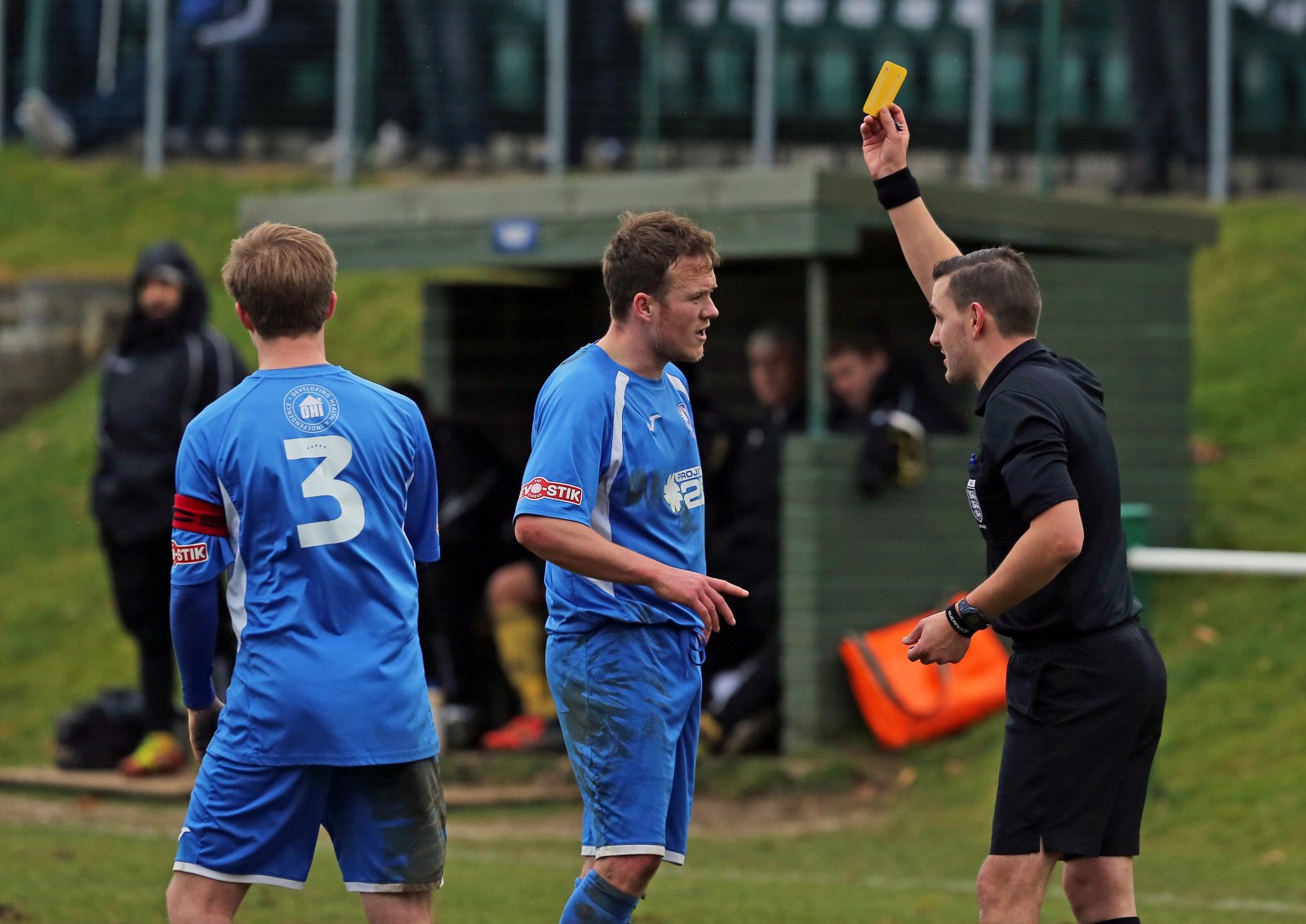
Last season, The FA piloted the use of sin bins for dissent at various levels across the English game. This year it will be expanded to even more leagues from Step 7 and below.
As part of an on-going series with the governing body, we caught up with Head of Judicial Services, Mark Ives.
What leagues will we see the use of sin bins in this coming season?
We piloted it last year in 31 leagues at different levels of the game – adult male, adult female, youth, Saturday Leagues and Sunday Leagues – so we had a broad understanding of how it fits into each of those categories.
It proved a massive success to the extent we are widening that group for this year. We will be including it in more than 60 other leagues, across the same level at Step 7 and below as well as a variety of County Cups. The view is then to make it mandatory at Step 7 and below across the country for 2019-20.
How long does a player spend in the sin bin?
It’s important we make it as simple as possible so we don’t have confusion game on game. For any fixture of 90 minutes duration, the period in the sin bin will be ten minutes. That’s ten minutes of playing time, not ten minutes of flat time. So the referee will stop-start the clock depending on the various stoppages within the game. For games less than 90 minutes, it’s eight minutes in the sin bin.
What are the key findings from the Pilot?
It was a huge success. We went into it with a very open mind. We didn’t know what to expect in terms of what success would look like.
The reduction in dissent, which is what we chose to use the Pilot for, is one of the measures but it’s not the only measure.
If it impacted on the enjoyment of the game for those who are participating or it broke up the game and was difficult to understand, we would have to think again.
We found, from a pure statistical point of view across those 31 leagues, a 38 per cent reduction in dissent compared to the previous year. That’s significant.
It also showed a reduction in sendings-off because invariably what happens is someone gets a caution for dissent, it doesn’t get dealt with in a way that has an immediate impact on them – which is the intention of the sin bin – so that behaviour continues to deteriorate.
We need to remember the purpose of the sin bin is to have an immediate impact on the player and to change their behaviour there and then.
We also carried out a survey of the leagues using it to get the feedback of the people operating it. Managers, players, league officials and referees all reported back and, with a very high majority, they all stated they wanted the sin bin principle to stay. That’s encouraging.
Why Dissent?
IFAB (International Football Association Board) give the discretion to the national associations what yellow card offences we use it for. We chose dissent.
When you think about the seven cautionable offences, dissent is a behavioural issue. The other offences, some would argue, are part and parcel of the game and are footballing issues. Dissent has an impact on people’s enjoyment – and by that I don’t just mean referees, other people don’t like it either. The amount of cautions for dissent at grass-roots level the season before accounted for 73,500 yellow cards. So 25 per cent – one in four – were for dissent. We want to change that behaviour.
Everyone has a part to play in it. Sin bins are part of the solution but they aren’t the complete solution. Clubs have to take their responsibility in educating their players to not argue with the referees.
What we’ve found with sin bins is that is exactly what clubs are doing. They are policing it themselves, either the managers or the players, by seeing it impacts their enjoyment and their ability to compete with 11 players on the park.
How will the official communicate it? What have referees been told about it?
It’s a yellow card offence so a yellow card is shown. Some people believe a different colour card will assist but that’s not in our right to introduce that. We are governed by the IFAB laws of the game. They are responsible for the world game and I’m sure they will take on our feedback.
But as it stands at the moment, the referee will issue a yellow card and point to the side of the pitch. We found during the pilot that, while some are of the opinion a different colour card will assist for the communication for spectators, at grass-roots level people will see the player walking off, will know we are using sin bins and understand what happens.
Training officials is an important part. A reason why the pilot was a success is because we spent time training the clubs and referees and we’re doing exactly the same this year.
Are players still fined?
Sin bins are intended to have an immediate impact and the player serves their sanction there and then. If a player learns from that we will not attach to their yellow card the £10 administration fee.
The offence is still reported as normal. It’s important we have those figures to see how it’s working. But it’s also used for the continual misconduct of players and still goes towards the player’s record. So a sin bin still counts as one yellow card towards the 5, 10, 15 totting up process.
Will it be expanded to other offences?
The option is open for us in the future to consider it. But, for me, the key priority at this moment in time is to introduce it so people accept it as part of the game. Once people accept the principle, we’ll have a period of consultation and within the game they may say they only want to opt for dissent or they may say there are other offences they’d like it to consider using it for.
What do you hope it will achieve?
If players learn at a very young age that you’re not going to gain anything by arguing with the match official, hopefully as they progress in their career it won’t be part of their game.
What about the future – should we expect to see sin bins used higher up the Pyramid?
IFAB have determined national associations can use it for the grass-roots level of the game. So we only have the authority to use it at those levels. But if people like what they see and IFAB change their stance on that, you should never rule it out.
From the FA’s point of view, we are absolutely delighted with the support given by the 31 leagues last season. They’ve helped shape a major change in the game. They approached it with an open mind. I would ask those trying it out for the first time this year to do exactly the same.























